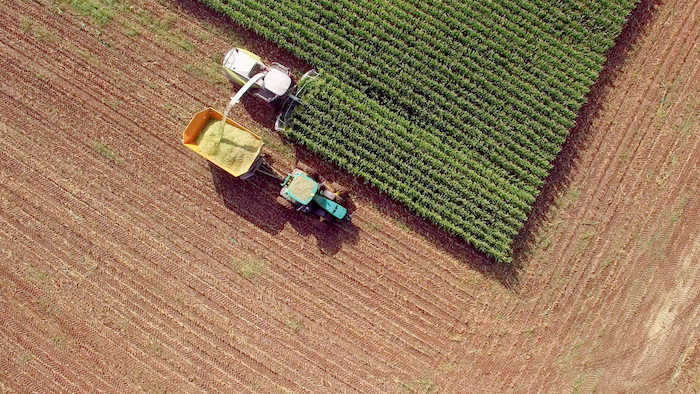SACRAMENTO, Calif. — Electrifying one medium-sized tractor in California reduces carbon emissions by as much as replacing 45 cars with EVs, and as the state is aggressively targeting zero-emission transportation, Gridtractor on Nov. 2 launched from stealth to develop charging technology, fleet electrification and energy management services for electric tractors and heavy farm equipment.
Gridtractor will help farmers seamlessly integrate electric charging and vehicle to grid (V2G) into their operations to strengthen the power grid with its smart energy platform. In addition, the company estimates farms can save 55-75% on fuel costs by going electric and up to 90% by supplying stored power to irrigation pumps and to the grid. The company's first customer, Terranova Ranch, will utilize the Gridtractor Planning Model Software-as-a-Service (SaaS) to determine the best deployments for electric tractors and integration with existing electrical infrastructure at dozens of irrigation pump sites and solar arrays.
"Working alongside Gridtractor towards a better environment is a win-win for both our customers and California's agricultural industry, which produces at least one-third of the country's vegetables and two-thirds of the country's fruits and nuts," said Don Cameron, vice president and general manager of Terranova Ranch. "For over 40 years, our team has paid special attention to sustainability and keeping our soil, water and air quality as healthy as possible, which is critical to ensuring long-term crop viability and employee wellness. We are taking this one step further with our partnership with Gridtractor to reduce emissions and transform energy use at our ranch."
As a partially-owned subsidiary of Polaris Energy Services, whose management team contributed to seed financing for the new company, Gridtractor will leverage existing on-farm electrical services with new charging and monitoring technology to manage electric tractor operations, including automated reports that alert operators and the Gridtractor Operations Center when something is not working correctly. The company is developing control hardware and SaaS that will help farmers manage fleets of tractors, irrigation pumps, and solar arrays to optimize the economics of energy production, consumption and storage. The company is launching operations in California initially to take advantage of extensive electrical infrastructure on farms, lucrative incentives for electrification, and cutting-edge pilots for vehicle grid integration (VGI).
As part of the company's turn-key service offering, Gridtractor will provide farm operators with site and project managers to assist with implementation and liaison with utility companies and electrical contractors to ensure the technology is deployed and operating efficiently. Like several Charging-as-a-Service models for electric bus fleets, Gridtractor CEO David Meyers sees excellent potential for this type of solution in the agricultural community.
"While observing the rapid acceleration in EV adoption, especially in the heavy-duty sector, we realized that agriculture is an underserved industry in electrification. And considering the emissions generated by one tractor, we believe it is critical to help farmers adopt this technology faster and more seamlessly," said Meyers. "The longest pole in the tent for transportation electrification is building out the infrastructure to support a massive increase in demand on the grid, and with the vehicle-to-grid component of our solution, we can essentially turn an electric tractor into a giant battery. We estimate that on top of the field savings, farmers can save 15% for smart charging and Vehicle-to-Load/Vehicle-to-Grid applications, for a total of 90% cost savings that will be supplemented by lower maintenance and repair costs."
With local and regional incentives, California farmers have funding opportunities to help offset electrification costs. For example, the San Joaquin Air Resources Board’s Agricultural Tractor Replacement Program provides incentive funds for the replacement of in-use, off-road mobile equipment that are engaged in agricultural operations as defined by the California Air Resources Board. In addition, Polaris was recently awarded a $2.9 million grant from the California Energy Commission (CEC) to roll out its automation technology that manages agricultural energy resources to reduce net peak load on California's grid.





Post a comment
Report Abusive Comment